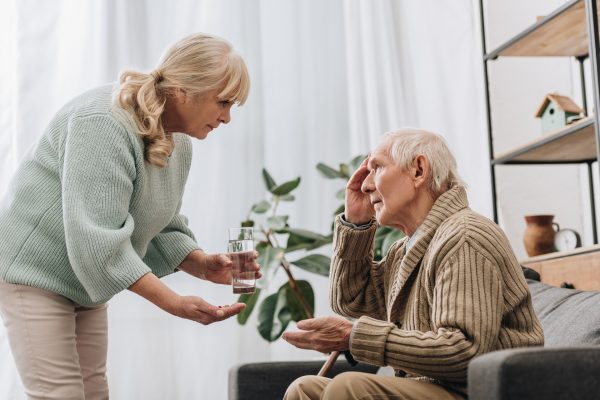The diagnosis of dementia or Alzheimer’s for a loved one is a challenging, emotionally charged experience. One of the many decisions you’ll face relates to how much help your loved one needs now, and how that might change in the future. As you begin researching, you’ll find that there are several care options for seniors living with dementia or Alzheimer’s. A private, specialized memory care home like Syncare Memory Suites here in Minnesota is one of them. Here’s what to know about the benefits of private memory care facilities.
What is a Memory Care Home?
Memory care is a specialized option designed for people living with dementia and Alzheimer’s. It’s a live-in option in a private home with the kind of structured environment that contributes to a supportive, enriching life.
Seniors living with dementia and Alzheimer’s often need specialized care in a safe, secure environment. This level of care can be challenging for family members or caretakers, and nursing homes or hired caretakers may not be able to accommodate the special needs inherent to seniors with memory loss conditions. Memory care homes like Syncare fill this need, offering professional, round-the-clock care in homes specifically to be safe, secure, and stimulating.
Memory Care Goals
A good memory care home doesn’t just provide an appropriate environment – it also uses industry best practices to help slow down the progression of dementia or Alzheimer’s. At the same time, quality memory care homes are committed to ensuring each resident feels a personalized sense of community, enjoyment, and purpose. Every resident is different, and care should be centered on the individual – not the condition.
There are a number of proven methods for achieving this quality of life, including but not limited to:
- Team members: An engaging, committed, and experienced staff is critical and the very heart of any memory care community. Inquire about staff screening processes, ongoing training, and availability.
- Environment: A familiar, comfortable environment helps residents thrive. At Syncare, our suites are highly personalized. Comprehensive assessments prior to move-in help our team create spaces that look and feel like home.
- Resources: Proven resources and technology can help ensure a safe, secure environment and up-to-the-minute care. Ask about the kinds of resources that make life better for a home’s residents.
- Meals: Purposeful nutrition should include freshly prepared gourmet meals and specialty food programs that accommodate individual residents’ dietary restrictions and preferences.
- Activities: Events and activities should be specifically planned for their proven ability to help residents improve cognitive function and help maintain skills
Finding the Right Care Option for your Loved One
Finding the right care option for your loved one with memory loss starts with a realistic discussion among family members about expectations and abilities. A memory care home may be the best option, and that can be easily investigated with a phone call and a visit. Plan to visit several homes so you can compare the strengths of different facilities. Ask lots of questions about how, specifically, they prioritize the resident, and not the disease. Ultimately, the right home will be the one that offers your loved one a safe, comfortable, familiar space to live with dignity and support.
If you have questions about specialized memory care, we’re happy to answer them. Contact us today, and let us share what makes Syncare Memory Suites a home like no other.



